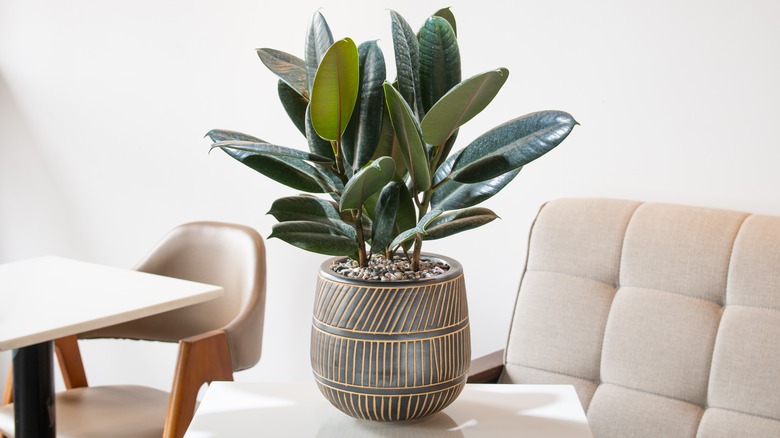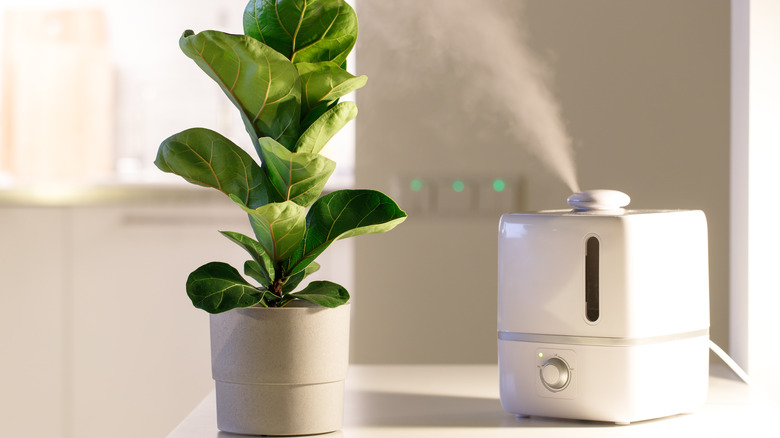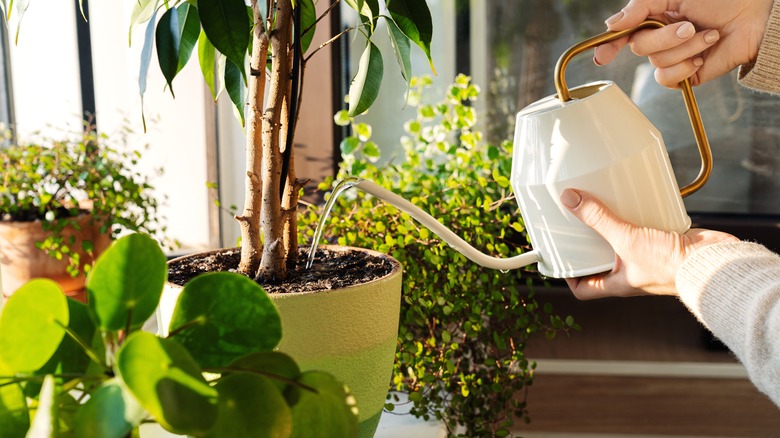Tips For Keeping Houseplants Thriving In Winter
Winter can be a challenging time for houseplants. Instead of focusing on growing, they go dormant so they can stay alive until the following summer. During this time of year, they have to survive with less sun, cold weather, and dry air. Without the proper care, they can quickly die before the weather warms up again.
Since plants go dormant, they don't need much extra care. They don't need fertilizer and should get less water. Jobe's Company explains that dormancy occurs so that plants can conserve their energy. If they were to continue growing, more water would be in their leaves and stems, which would freeze in the cold weather and harm them. That is why you won't notice any new growth during the winter. Instead, plants develop their root systems in warm soil. To keep your houseplants thriving, you must provide them with an environment that stops their foliage from dying out and their roots from rotting.
Use a humidifier
Humidifiers can save your houseplant collection from the cold and dry winter air. Many people don't realize that blasting the heat in their homes is one of the top reasons plants can't thrive during the cold months. It's not just that the air around them is chillier than in the summer months, but that it's dry, according to Dave's Garden. Luckily, you can follow a few steps to save your plants from becoming crispy during this time of year.
First, you'll want to move them away from any air vents or space heaters. If moving them would sacrifice the amount of natural light they get, you can keep your plants in that spot as long as you check the soil's moisture more often. The next step you can take is either placing a humidifier in the room or creating your own. To do this, place a tray filled with pebbles under your plant's pot. Each day fill the tray with water. Throughout the day, the water will evaporate into the air around your plant like a humidifier.
Water less often
During the winter, houseplants don't need water as often, or they will be at risk for root rot. They require less moisture because their soil can't dry out as fast as it does in the summer, with the sun shining on them more throughout the day and the heat helping to evaporate the water. If you continued to water your plants with the same schedule, they would have wet soil and soggy rotten roots. To prevent this from happening, Joy Us Garden explains that you should water houseplants 25% less than in the summer.
Every plant has different needs depending on species, pot size, maturity, and environment. To control the amount of moisture you give your plants, you can use a smaller watering can than you usually do. The temperature of the water you use matters, too. Room temperature is best, so you don't shock the roots.


